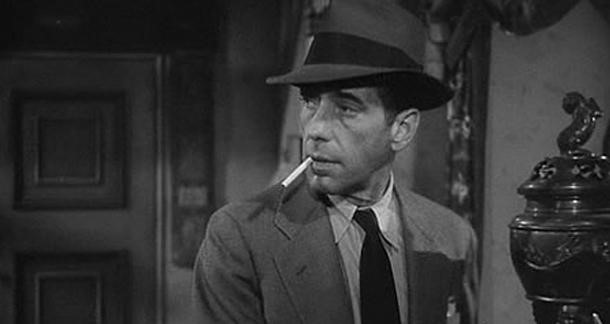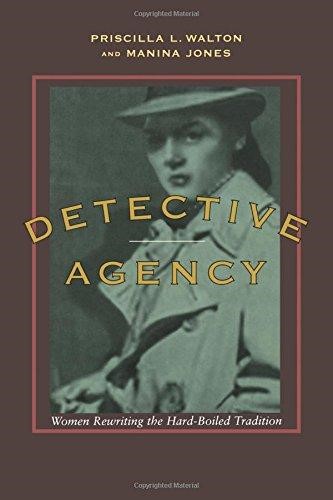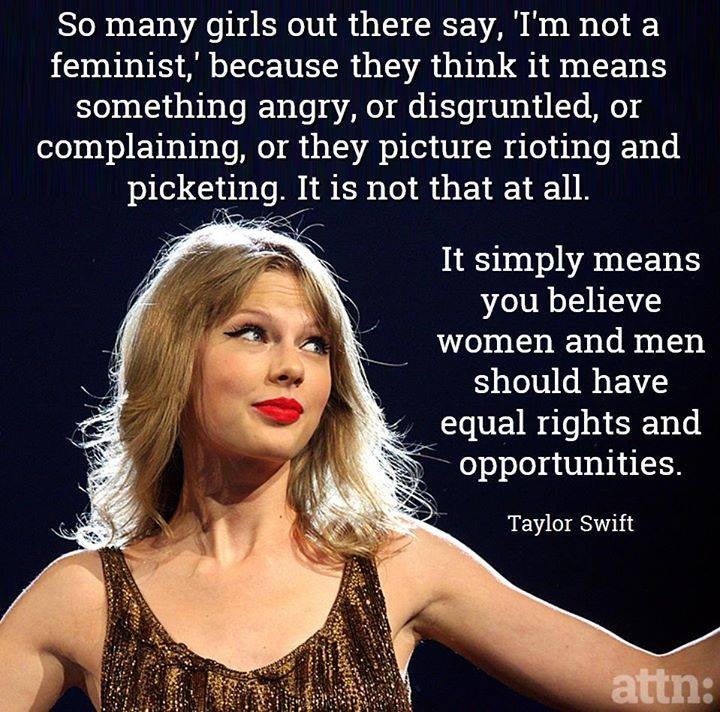Open a book. Turn your TV on. Look for a crime story and you will probably find a woman at the centre of it. And even though victims in crime fiction have traditionally been female—a subject worthy of its own post—I am talking about the wave of strong, opinionated, and inspiring women who have owned crime fiction narratives for the last thirty years. This shift from the iconic and always male Man in the Mac to the modern woman is in keeping with the social and political developments derived from the fight for equality and women’s rights, and these female detectives, forensic doctors, lawyers, journalists represent the success of these struggles. But a closer look at popular crime novels and their consumers may suggest that popular culture is a more complex field than many might think.

Canadian academics Priscilla L. Walton and Manina Jones’ Detective Agency, a study on North American crime fiction published in 1999, offered some light as to how these feminist characters (because it is better to make it clear right here, right now, these women are feminists!) were perceived by the mainstream public. The 1980s were a decade dominated by the unapologetic feminists V.I. Warshawski, Sarah Paretsky, Kinsey Millhone, and Sue Grafton, so by the end of the 20th century it was clear that crime fiction audiences like their women strong and feminist. It was not a surprise to find the novels published in the 1990s dominated by professionally successful women who could very well solve a case on their own, thank you very much. I am talking about the likes of Kay Scarpetta (created by Patricia Cornwell) and Temperance Brennan (created by Kathy Reichs), whose novels changed crime fiction forever through the massive popularisation of their novels, all of them forensic thrillers. It would be reasonable here to conclude that by the end of the 20th century, crime fiction was dominated by women writers and female main characters, not only because these authors chose to write female-centric thrillers, but because the general public chose to consume these stories in which women were prominently featured.

However, a closer look at the end-of-the-century situation may suggest otherwise. In 1999 Walton and Jones interviewed female readers of female-led and female-produced crime fiction and found some astonishing results. Even though these readers could clearly identify their preference for these kind of narratives—that is, they knew what they liked and consumed— many of them failed to identify the main characters as feminists. Instead, these consumers preferred to focus their attention on the plot and defined themselves as alien to what they called ‘the political agendas of the novels’. When pushed a little more on the issue, they recognised the strength, economic independence, and professional success of the main characters in the novels, and sometimes they even identified with their struggles as women with their own, but under no circumstances did they define the characters as feminist. It is not a surprise then to read that none of these readers identified themselves as feminists either.
Almost twenty years have passed since the publication of Detective Agency, and many global events—especially in North America, where both the novels and the study were produced— have changed the way in which women and women’s art are perceived. The 2000s were clearly dominated by a bunch of fictional yet powerful, inspiring and yes, feminist women in crime fiction. On TV, doctor Temperance Brennan, CSI Katherine Willows, detectives Jane Rizzoli, Kate Beckett and—a personal favourite of mine—Deputy Chief Brenda Leigh Johnson became the main feature of their television shows, some of them even reaching the status of icons. Meanwhile, literature saw the rise of domestic noir with its female-centric stories and authorship to such a degree that Gone Girl (Gillian Flynn, 2012) is widely considered no longer just a novel, but a symbol of the struggles of Third-Wave feminism in post-modernity. Sometime during these productions, or maybe partly because of them, feminism became fashionable, and pop royalty like Beyoncé and Taylor Swift gladly accepted the label ‘feminist’, thus making it available for their world-wide followers. Whether or not this mainstream feminism is legitimate has been widely explored in other articles (see here and here). But, for the purpose of this one, we can champion this mainstream feminism in pop culture because it represents one little baby-step beyond what Walton and Jones documented in 1999.

So, what now? Things may have changed a lot in the past thirty years, but there is one constant: We still like our crime fiction feminist. Young women have thrived by consuming female-led narratives that many times have worked as inspirational tales of empowerment. What seems to be changing though is our acceptance of those stories as the word ‘feminist’ has developed from a politically dirty term to a flag waved by our favourite characters and artists. With their support, their inspirational lives, and their tales of female success, many people are no longer resisting the label. Instead, we are experiencing a willingness to openly declare to the world that yes, we like our women strong, and our crime fiction feminist. And for those who still find the term uncomfortable, these narratives will still work—that is the beauty of popular literature—as entertaining tales dominated authors and characters who just happen to be women.
Bio:
Elena Avanzas Álvarez is a last-year PhD candidate at the University of Oviedo (Spain). Her research focuses on contemporary American crime fiction and forensics, women authors, and feminism. Her work has been published in various international journals, and she is a member of the International Crime Fiction Association, the Crime Studies Network, and the European Association for English Studies (ESSE). Avanzas Álvarez is also a writer and literary reviewer and her work has appeared in the Los Angeles Review of Books, Mystery Tribune, OcultaLIT and Bristol 24/7. She is the founder of Bodies in the Library, a website focused on reviewing and promoting the work of contemporary crime fiction women authors.
You can find her on Twitter at @ms_adler
